#meat industry
Text
What I find really interesting about Dungeon Meshi is how it explores the role of humans/humanoids in an ecosystem and what is okay to consume.

Take the kelpie for example. Senshi is attached to the kelpie that frequently joins him while he's fishing, even naming her. Marcille also thinks it's cute and supports the idea of Senshi riding it. After that doesn't turn out well Senshi apologises while delivering the killing blow, appearing remorseful. Nevertheless, he himself sets out to salvage usable ingredients from the now deceased kelpie and even Marcille uses some of its fat for soap.
That is an example of exactly the type of relationship I think humans should have with livestock animals. I'm mostly vegan (occasional exceptions made for fish and eggs) both because of the environmental and animal rights issues with large scale livestock farming/the meat industry. However, I very much support a harmonious approach shown by indigenous peoples and small scale farming for example. Where, similar to Senshi and the kelpie, the animal lives a good life and is loved by its keepers until it is killed and all its parts are utilised.
There is also something to be said about people's involvement in the slaughter of animals so they respect the origin of their favourite products, like Marcille with the soap, since that is likely one of the reasons people currently consume animal products in such copious amounts. I regrettably didn't save the post in my drafts, but I saw someone on here talk about how far removed we are in the west from the origin of our meat products and how absurd it is that people are disgusted by a fish served with its head for example.
Meanwhile, Laios and Chilchuck are arguing over whether it's okay to eat a fish-man since it resembles a humanoid. Laios naturally wants to eat everything but Chilchuck has reservations when it comes to humanoids. This comes up in later episodes as well, where the rest of the crew appears to have fewer reservations since the creatures are being killed in self-defense and they're now seeing the utility of not letting resources go to waste.
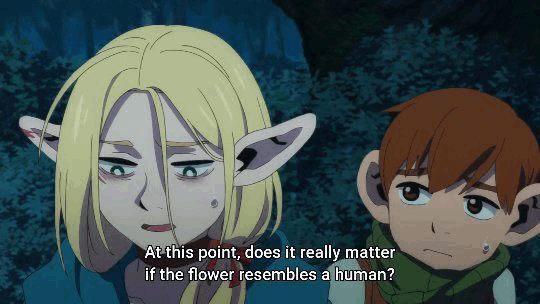
Now I wonder if they'll take it as far as cannibalism, but humanoids are already a close metaphor. In any case, it is a great way to showcase how the arbitrary values we attribute to different species influences what we consider to be acceptable food, even though it's all just meat. I mean, I could never slaughter a cat for example but somehow would be fine with eating human flesh...
#honerable mention for Senshi's comments to never exhaust a food source#episode 7#dungeon meshi#delicious in dungeon#Senshi#Marcille#Laios#Chilchuck#utility#veganism#vegetarianism#livestock#meat industry#cannibalism#long post#ecosystem#queue#kelsonius op
60 notes
·
View notes
Photo
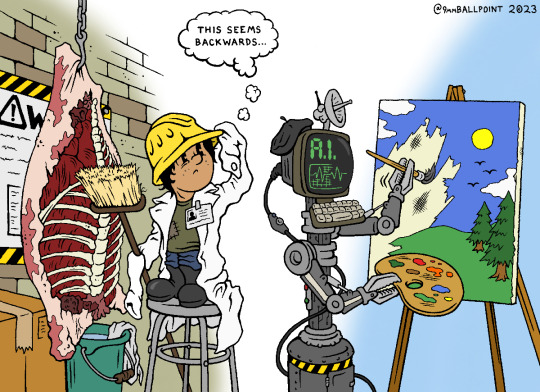
I'm not anti-technology, I just think there's something deeply sick about a society where robots make art and children work in factories.
54K notes
·
View notes
Text
It's so weird how meat-forward American food culture is that Americans who don't eat meat every day will say to me "yeah I'm basically vegetarian I don't eat meat *every* day" like????? Please I'm begging you to consider other forms of protein the human body is not meant to only eat meat, we are omnivores.
Like. It was honestly pretty easy for me to switch to a vegetarian diet because I grew up in a kosher household and kosher meat is *expensive* so we only had meat on Shabbat (once a week). But then I'll talk to other Americans and they'll talk about eating meat every day and I'm like??? How???
I think humans are meant to eat meat and I think expecting everyone to give it up is wrong, but c'mon this is not sustainable you do not need to be eating meat every single day.
Why is America so meat obsessed?????
#food anthropology#food production#american food culture#meat industry#if I had the time I'd answer my question and the answer would be the legacy of colonialism and displacing indigenous#to make way for cattle pastures
63 notes
·
View notes
Text
Dozens of youths illegally employed to clean meat plants, Labor Dept. says
Federal investigators accuse Packer Sanitation Services of employing at least 31 youths, ages 13 to 17, to clean kill floors and other areas where animals are slaughtered.
Several youths, including a 13-year-old, suffered chemical burns and other injuries, the Labor Department said. A 14-year-old worker who also suffered burns, investigators said, cleaned meat-cutting machines 18 hours a week during 11 p.m. to 5 a.m. shifts, then went to school and fell asleep in classes or missed them completely.
Packer Sanitation Services interfered with the Labor Department’s investigation by intimidating the children from cooperating with investigators, the agency alleged in a complaint filed Wednesday. The company also deleted and manipulated employment records, the Department said.
665 notes
·
View notes
Text
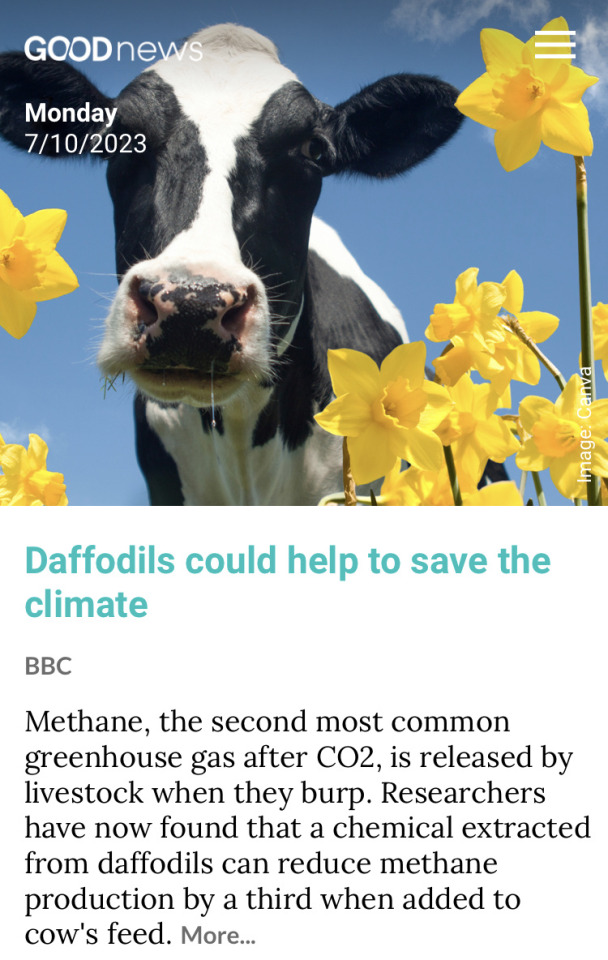
#i’ve heard this and seaweed/kelp? i think#but also we need to have beef alternatives and just eat less meat in general#but every bit helps#good news#animals#science#meat eating#climate change#meat industry#environmentalism#environment#methane#greenhouse gases#greenhouse gas reduction
58 notes
·
View notes
Text
Image with kind permission from Compassion in World Farmimg.

#vegan#veganism#animal rights#slaughter#slaughterhouse#slaughterhouses#factory farms#meat industry#stop factory farming#pig cruelty#pork cruelty#bacon cruelty
15 notes
·
View notes
Link
The water supply that 40 million Americans rely on has been pushed to its limit. Reservoirs and wells are running low. This week, the states that rely on water from the Colorado River reached a temporary deal with the Biden administration on sharing what’s left.What’s using all that water?
The majority [56%] of the water in the Colorado River basin — more than one trillion gallons — is used to grow feed for livestock, connecting the region’s water crisis to how much dairy and meat we eat.
The crops grown for humans to eat directly, like vegetables, use up less than a quarter of the amount of water that livestock feed does. And residential consumption, like watering your lawn and taking showers, uses a fifth of what livestock feed does.
No paywall: https://web.archive.org/web/20230522173625/https://www.nytimes.com/interactive/2023/05/22/climate/colorado-river-water.html
85 notes
·
View notes
Text
Nestlé supplier used Brazilian beef from seized Indigenous land
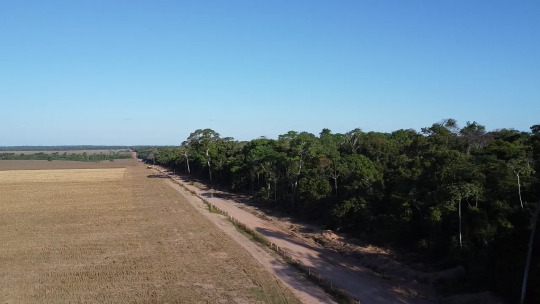
On one side of the fence, amid dense forest, the Mỹky people grow their crops: cassava, pequi and cabriteiro fruit. On the other, ranchers raise cattle on devastated land that has been seized from the Indigenous community.
Xinuxi Mỹky, the village elder, says this whole region used to be a forest where different villages thrived. Now only one remains, and the farms have cut into that land as well. “This pasture, where the whites live, was also our village, but now they are raising cattle. The land belonged to us: Indigenous peoples.”
Although the Mỹky people have lived here for centuries, the Menku territory – on the border of the Amazon rainforest and Cerrado savanna in Brazil’s Mato Grosso state – was only recognised by the Brazilian government in the mid-70s.
Final demarcation of the area is still under consideration; the Mỹky nation calls for the recognition of the full extent of their territory and the federal government has yet to evict the farmers occupying the area.
There are now studies that recognise the entire Mỹky territory. However, the demarcation process is being contested in the courts and is currently frozen under president Jair Bolsanaro. Meanwhile, farmers continue to destroy swathes of forest to plant crops and graze cattle.
Continue reading.
#brazil#politics#environmentalism#environmental justice#brazilian politics#indigenous rights#farming#meat industry#food#amazon rainforest#mod nise da silveira#image description in alt
252 notes
·
View notes
Text
If you ever wonder if you'd support slavery as a rich person in a slave owning society, you're in luck, just look at your fridge!
8 notes
·
View notes
Text
I have to say that your anti-vegan jokes and anti-vegan and pro-animal-products propaganda isn't actually that funny or clever or insightful. If anything it makes you look uneducated. Like you don't have any common knowledge.
80 notes
·
View notes
Text
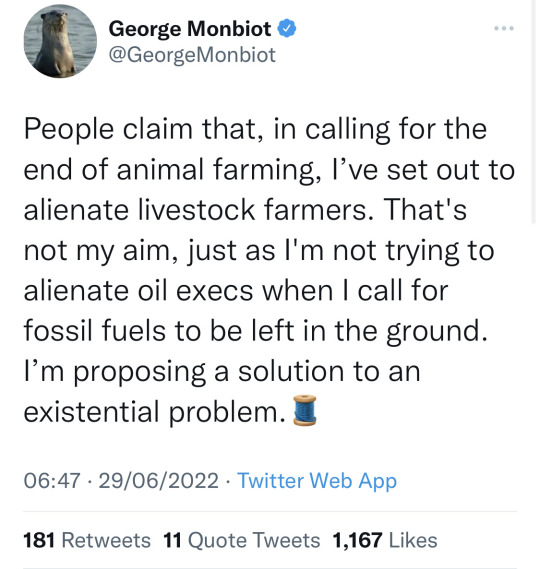
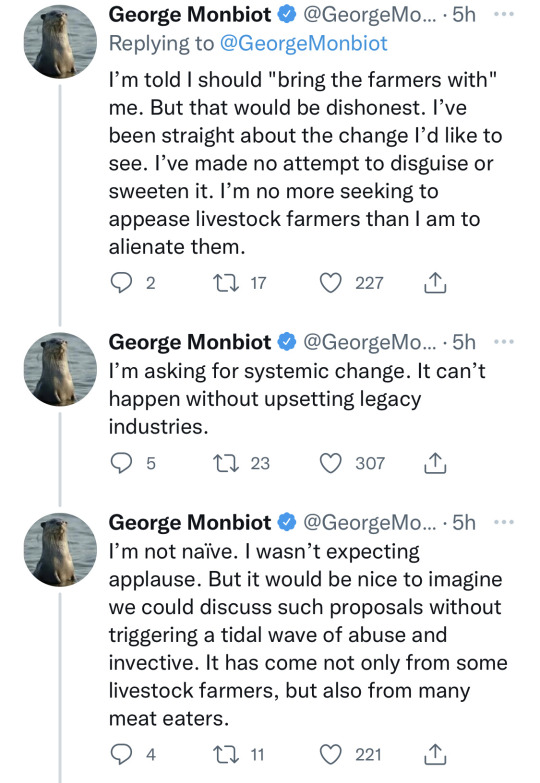

Pay attention to what happens when a highly respected journalist and authors dares to critique animal agriculture industries. It doesn’t matter how well researched the criticism is, how well sourced, it is always met with the same kind of unthinking vitriol, and far too much of it is applauded or enabled by people who consider themselves leftists and environmentalists.
If you want to see exactly what has got these people frothing at the mouth, the book in question is called Regenesis: Feeding the World Without Destroying the Planet.
304 notes
·
View notes
Text
call me the meat inspector the way i’m taking a look at the corruption within big business’ pants!
8 notes
·
View notes
Text
Hot air: five climate myths pushed by the US beef industry
“While fossil fuel consumption has done the most to put us on our dangerous path to climate catastrophe, a widely cited 2020 study in the journal Science argued that we can no longer avoid the worst of the climate crisis by cutting fossil fuels alone. Staying below the average global temperature rise of 2C – a threshold that scientists say will lead to systems collapse, mass extinctions, fatal heat waves, drought and famine, water shortages and flooded cities – will require ‘rapid and ambitious’ changes to food systems.
“The single most impactful food-related change we can make, according to their findings, is not increasing yields, ramping up agricultural efficiency or cutting food waste, though those approaches all would help. It’s adopting a plant-rich diet.
“While building out energy infrastructure can take years, changing our diet is something we can work toward today.”
#meat industry#beef industry#beef#diet#meat#western diets#plant-based#vegan#vegetarian#overconsumption#emissions#greenhouse gases#climate crisis#climate breakdown#climate change#climate#ecological crisis#usa#the west
42 notes
·
View notes
Text
A beef industry group is running a campaign to influence science teachers and other educators in the US. Over the past eight years, the American Farm Bureau Foundation for Agriculture (AFBFA) has produced industry-backed lesson plans, learning resources, in-person events, and webinars as part of a program to boost the cattle industry’s reputation.
Beef has one of the highest carbon footprints of any food, but AFBFA funding documents reveal that the industry fears that science teachers are exposed to “misinformation,” “propaganda,” and “one-sided or inaccurate” information. The campaign from the AFBFA—a farming-industry-backed group that "educates" Americans about agriculture—is an attempt to fight back and leave school teachers with a “more positive perception” of the beef industry, the funding documents reveal.
According to survey data included in these documents, educators who attended at least one of the AFBFA’s programs were 8 percent more likely to trust positive statements about the beef industry. Some 82 percent of educators who participated in a program had a positive perception of how cattle are raised, and 85 percent believed that the beef industry is “very important” to society.
The beef industry “knows it has a trust issue,” says Jennifer Jacquet, a professor of environmental science and policy at the University of Miami. The industry is attempting to influence public opinion by starting with children, says Jan Dutkiewicz at the Pratt Institute’s Department of Social Science and Cultural Studies. Dutkiewicz points out that one of the AFBFA’s objectives outlined in its most recent funding document is to run events that “engage educators and students … to increase their understanding and positive perceptions of the beef industry.”
...
The AFBFA is a contractor to Beef Checkoff, a US-wide program in which beef producers and importers pay a per-animal fee that funds programs to boost beef demand in the US and abroad. In 2024, Beef Checkoff has approximately $42 million to disperse across its initiatives, and a funding request reveals that the AFBFA’s campaign for 2024 is projected to cost $800,000. The allocation of Beef Checkoff funding to programs like this is approved by members of the Cattlemen’s Beef Board and the Federation of State Beef Councils, two groups that represent the cattle industry in the US.
One lesson plan provided as part of the program directs students to beef industry resources to help devise a school menu. In another lesson plan students are directed to create a presentation for a conservation agency regarding the introduction of cattle into their ecological preserve. A worksheet aimed at younger students has them practice their sums by adding up the acreage of cow pastures. Another worksheet based around a bingo game aimed at 8- to 11-year-olds asks teachers to “remind students that lean beef is a nutritions source of protein that can be incorporated in daily meals.”
Science teachers in many states are currently updating their lessons to incorporate the Next Generation Science Standards (NGSS)—a set of teaching guidelines that encourage educators to place more emphasis on how science is used in the real world. AFBFA funding documents show that the foundation intends to use the adoption of the NGSS as an opportunity to provide teachers with learning materials that relate to the beef industry.
“Furthermore, NGSS requires teachers to approach challenging topics such as climate change and sustainability,” reads an AFBFA funding authorization request for its education program. It continues: “Teachers and students are receiving information from educationally trusted sources that do not represent agriculture accurately or in a balanced way, and beef production is often the target of "misinformation". To achieve balance and to ensure the accuracy of information, a concerted effort must be made to engage teachers in the conversation around these topics.”
Dutkiewicz says that food production should be taught in US schools but that industry-funded material is unlikely to provide objective information about the impact of beef production. “I worry that clearly partial resources that are strategically designed to achieve a corporate messaging are being provided by a Checkoff program,” he says.
#enviromentalism#ecology#Beef industry#cattle#livestock industry#meat industry#livestock#lobbyists#corporate lobbying#American farm Bureau Foundation for agriculture#AFBFA#Cattle industry#Cattlemen Beef Board#Beef lobby
6 notes
·
View notes
Link
37 notes
·
View notes